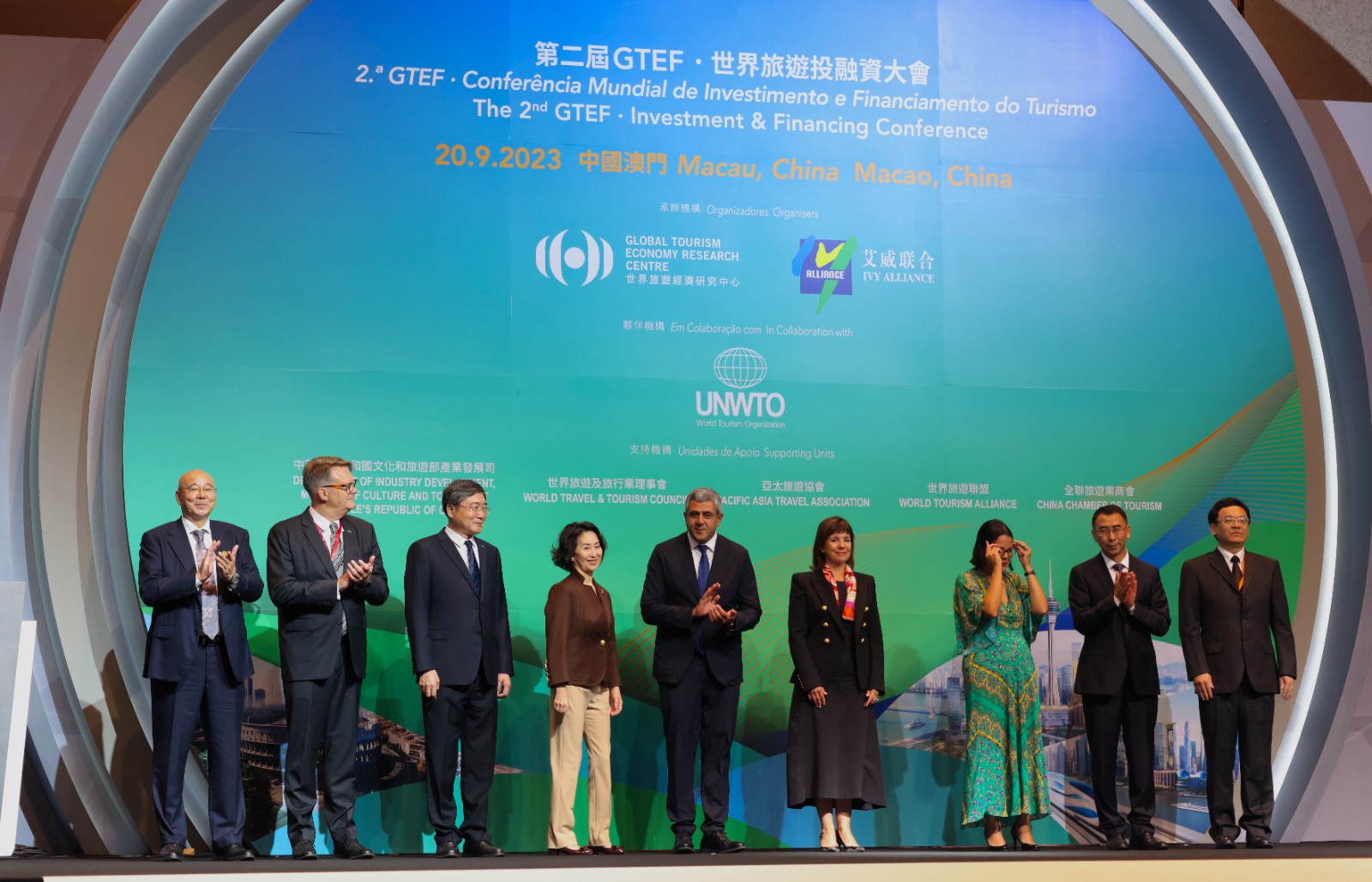2023-09-21
Zhang Tianyuan and Liu Yifan in Macao

Innovation and technology have turbocharged the tourism sector’s sustainable growth, with development potential in emerging markets, the Global Tourism Economy Forum in Macao heard on Wednesday. The remarks were made by industry luminaries at the four-day conference being held in the special administrative region from Wednesday to Saturday. Miao Muyang, director-general of the Industrial Development Department of the Ministry of Culture and Tourism, said there are promising investment prospects in China’s tourism business, given its expanding market size and diverse industry landscape. “The Chinese government attaches great importance to the development of the tourism sector. President Xi Jinping has emphasized the significance of the sector on numerous occasions, highlighting that tourism serves as a primary channel for cultural exchange and collaboration among different nations, as well as an effective means to promote economic growth, create employment opportunities, and improve people’s living standards,” he said in a keynote speech at the Investment and Financing Conference, held in conjunction with the forum. The conference was attended by senior officials and veteran investors from around the world. According to the National Bureau of Statistics, the added value of the nation’s tourism sector had gone up from 2.7 trillion yuan ($370.47 billion) in 2014 to 4.5 trillion yuan in 2021, at an annual growth rate of 4.99 percent. In 2019, the volume of domestic tourism reached more than 6 billion people, and total tourism revenue amounted to 6.63 trillion yuan. “It can be said that the tourism industry has played a significant role in empowering economic and social development and meeting people’s expectations for a better life,” Miao said. He expects the industry to keep up with emerging trends, such as digitalization and green development. In her opening address, Natalia Bayona, executive director of the World Tourism Organization, said the Asia-Pacific region saw rapid growth in greenfield foreign direct investment in the tourism sector between 2018 and 2022, with $65.1 billion poured into 517 investment promotion projects. Also, emerging destinations are gaining traction in attracting investments, she noted. Bayona said the Chinese mainland has been at the forefront of technological advancement in the tourism industry, with mainland companies making significant contributions to global investment in innovation and technology. She urged global stakeholders to leverage I&T to promote tourism’s high-quality development. Wang Xinjun, president and CEO of mainland-based Ivy Alliance Tourism Consulting, said he hopes the conference will serve as an international platform for government institutions, tourism enterprises, and organizations to communicate and collaborate for investment partnerships and business opportunities. In a separate session themed “Redefining tourism investments: From private equity to venture capital acceleration”, Inge Huijbrechts, global senior vice-president of Radisson Hotel Group, said the current economic uncertainties, coupled with inflationary pressures, have made it increasingly challenging to secure funds for new projects. Consequently, the Radisson Hotel Group is seeking flexibility and conversion solutions, and exploring opportunities for repurposing office spaces into hotels and multifunctional developments across its various brands. Agreeing that the financial market’s stability is a major problem confronting the global tourism business, Dawood Al Shezawi, president of the United Arab Emirates-based Annual Investment Meeting, said technology and creativity are key to accelerating the sector’s growth in a high interest-rate environment. The dramatic reversal from near-zero interest rates led the global venture capital ecosystem to a sharp pullback in 2022. Global venture funding slumped 35 percent year-on-year to $415.1 billion last year, with tourism startups hard hit, according to data from CN Insights. Al Shezawi said the tourism sector needs to come up with more creative ideas and events for promotion as they can spark wide discussions and get more businesses and people involved. The conference also shed light on the lucrative business opportunities brought by the Chinese mainland’s tourism policies, which encourage collaboration between the industry and the technology, health, wellness, culture and creativity sectors. The 10th edition of the GTEF opened on Wednesday, bringing together government officials and business leaders in sharing their insights into ways of overcoming the challenges facing tourism in the post-pandemic era, and in seeking the sector’s sustainable growth. Established in 2012, the forum is hosted by the Macao Special Administrative Region government, in collaboration with the United Nations World Tourism Organization.